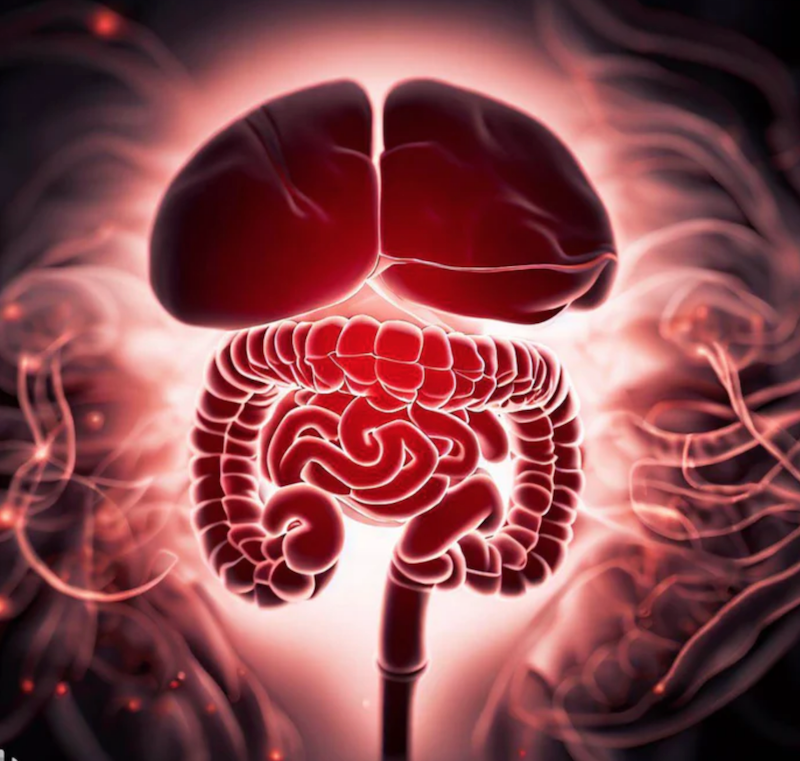
The Hungry Brain and The Hungry Gut | Organic Pharmer
Share
I'm so excited to share with you some insights on a topic that's floating about the zeitgeist: the hungry brain and the hungry gut. You may be wondering what these terms mean and how they relate to functional medicine and longevity. Well, let me tell you, they are very important and very relevant to our health and well-being.
The hungry brain and the hungry gut are two concepts that describe how our appetite and metabolism are regulated by complex interactions between our digestive system and our nervous system. These interactions are known as the gut-brain axis, and they have a profound impact on our health.

The gut-brain axis is a bidirectional communication network that connects the gut and the brain through neural, hormonal, and immune pathways. The gut-brain axis influences many aspects of our physiology, such as digestion, immunity, mood, cognition, and behavior. It also plays a key role in energy balance and body weight regulation.
However, sometimes this delicate balance can be disrupted by various factors, such as stress, inflammation, infection, diet, genetics, and environmental toxins. When this happens, we may experience dysregulation of our appetite and metabolism, leading to weight gain and obesity.
Obesity is a major risk factor for many chronic diseases, such as diabetes, cardiovascular disease, cancer, and dementia. It also affects our quality of life and our longevity. Therefore, it is crucial to understand the underlying causes of obesity and how to treat it effectively.
Researchers have identified four phenotypes of obesity based on the main drivers of excess weight: hungry brain (abnormal satiation), emotional hunger (hedonic eating), hungry gut (abnormal satiety), and slow burn (decreased metabolic rate).
The hungry brain phenotype is characterized by a reduced ability to sense when we are full after eating. This leads to overeating and increased calorie intake. The hungry brain phenotype is associated with low levels of leptin, a hormone that signals satiety to the brain.

The emotional hunger phenotype is characterized by a strong desire to eat for pleasure or comfort rather than for physiological needs. This leads to binge eating and cravings for high-fat and high-sugar foods. The emotional hunger phenotype is associated with high levels of ghrelin, a hormone that stimulates hunger in the brain.
The hungry gut phenotype is characterized by a delayed or absent feeling of fullness after eating. This leads to prolonged eating and increased portion sizes. The hungry gut phenotype is associated with low levels of peptide YY (PYY) and glucagon-like peptide-1 (GLP-1), hormones that suppress appetite in the gut.
The slow burn phenotype is characterized by a reduced ability to burn calories efficiently. This leads to low energy expenditure and fat accumulation. The slow burn phenotype is associated with low levels of thyroid hormones, which regulate metabolic rate.
As you can see, each phenotype has a different underlying cause and requires a different treatment approach. A one-size-fits-all solution for obesity does not work. That's why functional medicine offers a personalized and holistic way to address obesity based on an individual's phenotype.

A functional medicine practitioner can help you identify your phenotype by conducting a comprehensive assessment of your medical history, physical examination, laboratory tests, and lifestyle factors. Based on your phenotype, they can design a tailored plan that includes dietary interventions, nutritional supplements, exercise prescriptions, stress management techniques, behavioral therapies, and medications if needed.
By following a phenotype-guided approach to treatment, you can achieve sustainable weight loss results that improve your health outcomes and extend your lifespan.
I hope this blog post has inspired you to learn more about the hungry brain and the hungry gut in functional medicine as it relates to longevity. Remember that you have the power to change your health destiny by understanding your body's unique needs and addressing them accordingly.
Want to get a jump start? A healthy diet is the foundation to living a long and healthy life. Our Dr. Blum's Healing Soups are a nutritious and delicious food to add into your daily routine.
Thank you for reading and stay tuned for more updates on all things wellness, longevity, and functional medicine.

